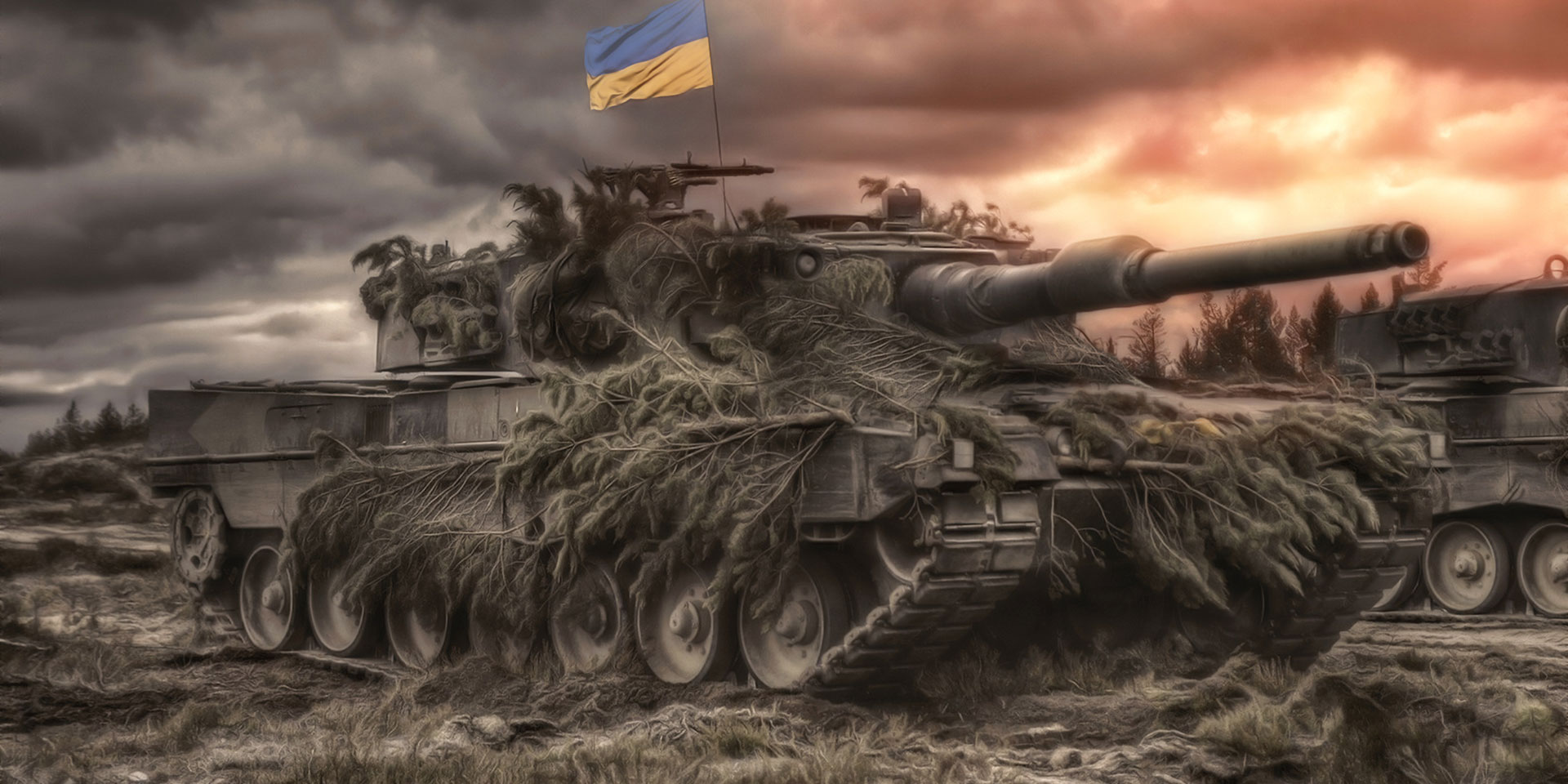On February 24, 2022, Russia attacked Ukraine, and the fall of the Kyiv regime seemed to be only a matter of days. The war in Ukraine has just crossed the one-year mark, and the prospect of peace seems increasingly distant, as none of the belligerent parties can afford to lose this war.
On Thursday, February 23, just a few hours before the first anniversary of the invasion of Ukraine, the UN General Assembly adopted a resolution calling for a “comprehensive, just and lasting peace in Ukraine.” The document calls for the “immediate” withdrawal of Russian troops from Ukraine and an end to attacks on Ukraine’s critical infrastructure and deliberate attacks on civilian targets. The UN also states the need to bring to justice the perpetrators of the crimes committed on Ukrainian territory during the war.
The resolution, which is not legally binding, but only of symbolic and political value, was adopted with 141 votes in favour and 32 abstentions (China and India were among the countries that abstained). Russia and six other states (Belarus, Eritrea, Mali, North Korea, Syria, and Nicaragua) voted against it.
It is not peace when an aggressor is rewarded for its “ruthless violence.”
The path to peace is very clear, stated German Foreign Minister Annalena Baerbock, emphasising that “it’s not peace if an aggressor tells its victim to simply give up.” Japanese Foreign Minister Yoshimasa Hayashi declared that invading a country, seizing its territory and then calling for peace on terms dictated by the aggressor would mean setting a “terrible precedent.”
Dmytro Kuleba, Ukraine’s Foreign Minister, accused Moscow of genocide, saying the aggressor has murdered civilians, attacked civilian infrastructure, and forcibly transferred thousands of Ukrainian children to Russia.
In response, the Russian ambassador to the UN, Vasily Nebenzya, stated that the UN resolution was divorced from reality, arguing that the West is using Ukraine as a pawn to subjugate Russia. Nebenzya questioned the West’s desire for peace, arguing that Moscow is ready for a diplomatic solution, while Russia’s enemies still cling to the illusion that they can defeat a nuclear power.
As we can see, one year after the start of the war, Russia and Ukraine are in diametrically opposed positions. The chasm between the two points of view was also reflected in the speeches given by Joe Biden and Vladimir Putin on the same day.
A year of war in Ukraine | Two speeches (“historical” and in antithesis)
It is quite rare for the US president and the Russian leader to give important speeches on the same day, touching on the same major topics, writes journalist Anne Applebaum in an analysis published by The Atlantic. However, it happened on Tuesday, February 21, before the first anniversary of the Russian invasion, when Joe Biden and Vladimir Putin presented different narratives about the war in Ukraine, addressing different audiences, Applebaum points out.
The Russian president resumed the narratives exposed over the last year. His speech, which lasted an hour and 45 minutes, was probably not as noteworthy as the Kremlin had hoped, and for some, it even had the effect of a sleeping pill, writes Today Times. In fact, President Biden’s visit to Warsaw and the surprise visit to Kyiv diverted public attention from the Russian leader’s announced speech. In addition, the test of the SARMAT missile, also nicknamed Satan II—which could carry multiple nuclear warheads—appears to have failed. American officials believe that if the test had been a success, Putin would not have omitted the topic from his State of the Nation address.
The Russian president justified the “special operation” in his well-known manner, saying that Russia would have preferred to follow the peaceful path, and that the “Western patrons of Ukraine” are responsible for this war, which Russia is only trying to stop. The stake of this war is the very existence of Russia, the Russian leader claimed. To destroy Russia, the West will use religion, culture, terrorists, Nazis and even “the devil himself,” Putin maintained. In his speech, he used the subject of homosexuality, but also that of paedophilia (which, he claims, is already “a normal thing” in the West) to attack the Occident and argue the need to protect Russian children from moral degradation.
How the war ends will define how our children and grandchildren will live in every corner of the world.
In the speech held in Warsaw, President Joe Biden stated that the invasion of Ukraine was a test for Europe, America, and democracy. In fact, Biden focused his speech on a few important themes: freedom, unity, and hope. The US president commended the courage of the Ukrainian people, recalling that a year ago the world was preparing to see Kyiv fall. The easy victory that Russia had anticipated did not come, however, and the Ukrainian people’s love for their country will triumph, the president pointed out. The stake of this war is freedom, and the way it will end will define the way our children and grandchildren will live in every corner of the world, Biden concluded, assuring that support for Ukraine will not stop.
The two speeches highlighted opposing, irreconcilable perspectives, and the two presidents seem to have agreed on only one aspect: the war in Ukraine is not coming to an end, is the conclusion of an analysis published by The New York Times.
Suspension of participation in the New START treaty, a “deeply unfortunate” decision
Over the last year of the war, not only have we witnessed growing suffering, but we have also realised that things can take a turn for the worse, said António Guterres, the Secretary-General of the United Nations, warning of the spread of the conflict and the risk of nuclear weapons being used. The warning comes as Russia suspended its participation in the New Strategic Arms Reduction Treaty (New START), the last remaining bilateral nuclear arms control agreement between Moscow and Washington. The announcement was made by President Putin in his speech on February 21, in which he stated that he was forced to take this decision due to the “hostile actions of the West” against Russia.
Later, the Russian Foreign Ministry made some clarifications, stating that the decision to suspend participation in the treaty was “reversible” and that Russia would continue to respect the limits on nuclear weapons established in the treaty.
With the decision to halt participation in the New START treaty, “the whole arms control architecture has been dismantled.”
Russia’s decision to suspend participation in the New START treaty is “deeply unfortunate and irresponsible,” US Secretary of State Antony Blinken said. Russia has withdrawn from or violated several arms control agreements in recent years, NATO Secretary General Jens Stoltenberg also pointed out, stressing that with the suspension of participation in the New START treaty, “the whole arms control architecture has been dismantled.”
The new Strategic Arms Reduction Treaty was signed in 2010 by Barack Obama and Dmitry Medvedev and was enforced in 2011. It replaced the START I (Strategic Arms Reduction Treaty), signed in 1993 by George Bush and Mikhail Gorbachev (which had expired on December 5, 2009) and the SORT (Strategic Offensive Reductions Treaty), which was signed in 2002 and was due to expire in 2012.
The New START treaty, which was extended by 5 years by Vladimir Putin in January 2021, limits the weaponry of Russia and the United States to a maximum of 1,550 warheads on each side and a maximum of 800 launchers and heavy bombers. Each party may also carry out inspections of the strategic nuclear weapons sites of the others. Signed after many negotiations, this treaty is all the more important as 90% of the world’s nuclear weapons are owned by the two states.
Although the Russian president has emphasised that Russia is not withdrawing from the treaty, but rather suspending its participation, this decision signals a major problem, notes Andrey Baklitskiy, a senior researcher in the weapons of mass destruction and other strategic weapons programme at the UN Institute for Disarmament Research. Even though the suspension is a different stage from withdrawal, it could become very close in time.
According to the Center for Arms Control and Non-Proliferation, Russia has approximately 5,977 nuclear warheads, 1,588 of which are deployed (placed atop ballistic missiles or stored in heavy bomber bases).
Russia has already suspended mutual inspections of nuclear weapons sites, and experts believe the situation would worsen if Putin stopped routine reporting and data sharing on nuclear weapons movements.
Where are we going?
Russia’s decision to suspend participation in the treaty is an “entirely symbolic” move to try to force peace on its terms, said John Erath, senior policy director at the Center for Arms Control and Nonproliferation.
It is not the first time that Russia has threatened with nuclear weapons, but the suspension of the New START treaty does not mean that Moscow will expand its nuclear arsenal from tomorrow, nor that it will use nuclear weapons in Ukraine in the near future, says Ileana Racheru, a specialist in ex-Soviet space. The specialist excludes “any deliberate action of a nuclear nature”—but does not exclude an accident, however—because of the possible effects on the Russian Federation of such deliberate action. The trajectory of a radioactive cloud cannot be known exactly, and the radiation could penetrate the water table, reaching the Black Sea.
On the other hand, Racheru admits that Russian expansionism will not be easy to stop and that the possibilities analysed and expected by many since the outbreak of the war in Ukraine (including revolution, coup d’état, and foreign intervention) have extremely low chances of materialising.
Only a military defeat in Ukraine could put Russia back on a democratic path, but it carries risks.
Only a military defeat in Ukraine could return Russia to a democratic path, which it has already walked, for a short time, twice in its history—says historian Michael Ignatieff. However, defeat carries other risks—perhaps a civil war, or a more authoritarian regime—so Ignatieff remains pessimistic about the future, declaring that a miracle is needed for the birth of a democratic Russia.
The year 2023 will be the “year of invincibility,” declared the President of Ukraine, Volodymyr Zelensky, in a video message that marked the anniversary of the Russian invasion of Ukraine. The Ukrainian people are ready for anything after what happened on February 24, 2022, “the longest day of our lives. The hardest day of our modern history. We woke up early and haven’t fallen asleep since.”
After a year of war with Russia, 95% of Ukrainians believe that their country will win, according to a survey presented by the Ukrainian Institute Rating Group.
Conversely, former Russian President Dmitry Medvedev said that he is confident that Russia will win this conflict and thus bring the peace that the world is waiting for, “to push back the borders of the threats against our country as far as possible, even if this is to the borders of Poland.”
Two worlds with completely different views stand face to face. Neither side can afford to lose the war, and as Gabrielius Landsbergis, Lithuania’s Foreign Minister, pointed out, there is no scenario in which both states win.
A year after the invasion, virtually no resident of Ukraine has avoided the violence, death, and destruction of the war, note the authors of an article that goes through the losses resulting from the invasion.
Neither side can afford to lose the war, and there is no scenario where both states win.
Meanwhile, life goes on in Ukraine. In Kyiv, mothers walk their children in strollers—the city has not been the site of direct confrontations since the beginning of the invasion, but it has been sporadically hit by missiles, and the authorities in Kyiv have announced that they are preparing to face a new wave of attacks from the Russian side, one year after the beginning of the invasion.
As of last week, trams are running again in Kyiv, two months after Russia bombed Ukrainian infrastructure. It’s a reason for celebration for residents, and Khrystyna Mironova says this is a day she’d rather talk about trams than war.
Liudmyla Danilenko, 79 years old, has been waiting at the tram station for an hour (tram traffic was interrupted due to an air raid alert), but she is not complaining—she is enjoying the sun and fresh air. She admits that she is afraid every day, but she knows that her parents, who experienced the horrors of the Holodomor and World War II, lived through even harder times. “Hope is the last thing to die,” she says.
Carmen Lăiu is an editor at Signs of the Times Romania and ST Network.



















